Sign up to receive The Snapshot, a free special dispatch from Laptop Mag, in your inbox.
You are now subscribed
Your newsletter sign-up was successful
Crowdfunding website Kickstarter is responsible for a new wave of gadget innovation, producing products ranging from mobile applications to gaming console platforms. Crowdfunding allows artists and entrepreneurs to post a project concept or idea and then collect funds from backers around the world. Depending on the amount pledged, backers often receive a copy of the project itself. This 21st century method of funding has brought some amazing projects and products to life. Here are eight kickin’ Kickstarter projects that made it.
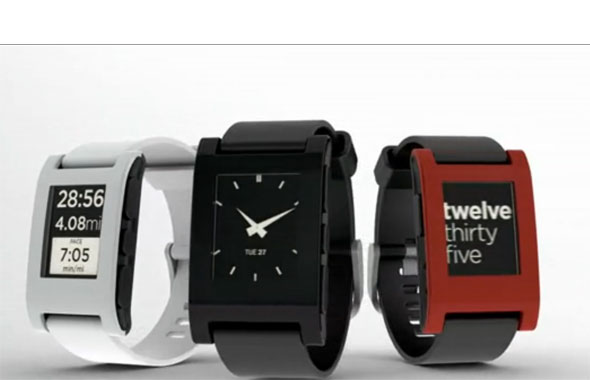
Pebble Smartwatch
Now your watch and your smartphone can work seamlessly hand-in-hand. With support for Android and iPhone, the Pebble Smartwatch will let you control apps and music, see incoming calls and texts and easily install new applications. Developers can also build apps for the fashion accessory. The Pebble really struck a chord with potential users. The company’s campaign blasted past the original $100,000 goal in two hours and eventually raised more than $10 million between 68,929 backers. The original delivery date was in September, but due to the scale to which the project grew, this date was delayed. As of press time, there wasn’t a specific release date, but backers were asked to request a watch color and submit a shipping address as soon as possible.
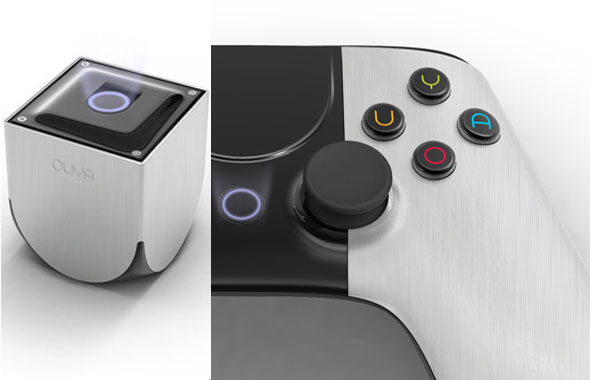
OUYA
Up until OUYA — a new breed of gaming console — the cost and complexity of developing for a television-based gaming device had been extremely high, and these costs prevented indie developers from bringing games to larger screens. OUYA is built on Android, making the platform more accessible, which in turn should bring lower prices and greater game options to consumers. Backers could pledge $99 to preorder their own OUYA, which captured the attention of gamers everywhere. The original funding goal was a lofty $950,000, but the company exceeded that milestone in no time. The funding round closed at almost $8.6 million. The OUYA console isn’t expected to ship to backers until March 2013, but users will have instant access to OnLive, Xbox Media Center and “Final Fantasy III.” If the platform is adopted as planned, we can expect many more game announcements to come.
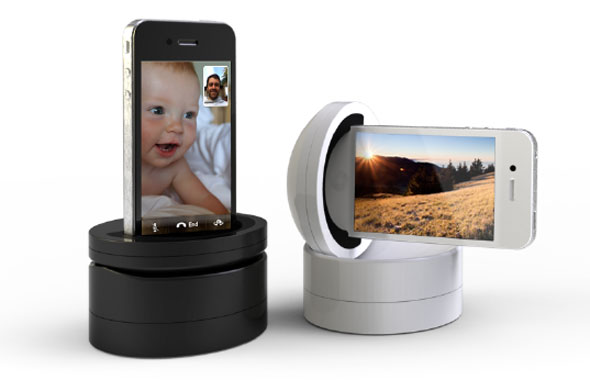
Galileo
An iPhone accessory for video recording and FaceTime chatting, Galileo allows a user to pan and tilt the robotic arm holding an iPhone from an iPad. This offers a look around the room without any outside assistance. Galileo raised over $600,000 more than its $100,000 goal. The final amount raised was $702,427, split between 5,227 backers. For as little as an $85 pledge, backers could preorder their own Galileo, which planned to retail for $129. Higher pledges were given access to special limited-edition Galileos, available in Kickstarter Green rather than the black-and-white model. The first batch of Galileo iPhone accessories was scheduled to ship in June, but production delays ensued. As of press time, backers are expecting iPhone 5 compatible units this fall.
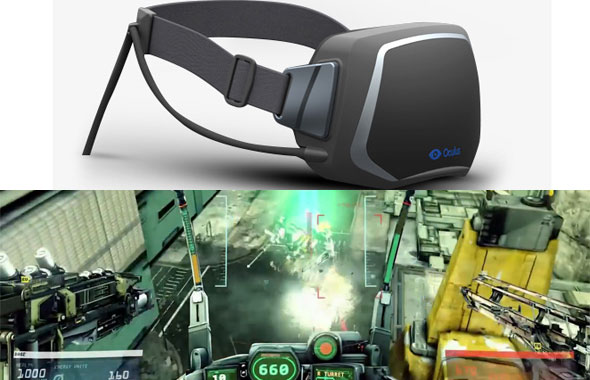
Oculus Rift
This is the virtual reality headset the world has been waiting for, offering an immersive experience unlike any product. While previous generations of virtual reality headsets have had viewing angles of around 30 to 40 degrees, the Oculus Rift has a diagonal field of view of 110 degrees. This means users will really feel as if they’re inside a video game. Plus, with low-latency head tracking built in, turning your head allows you to look around the world in near real time. Oculus VR launched its Kickstarter campaign with a Best of E3 2012 Game Critics Award and the support of industry heavyweights such as Gabe Newell, president and owner of Valve. The company reached — then exceeded — its $250,000 goal on the first day of funding. Oculus VR finished its crowdfunding round with more than $2.4 million.
A pledge of $300 was enough to preorder an Oculus Rift developer kit and a copy of the first-person shooter game “Doom 3 BFG,” scheduled to ship in December. A week before funding closed, Meteor Entertainment and Adhesive Games announced that the game “Hawken” will be Oculus-ready at its launch Dec. 12.
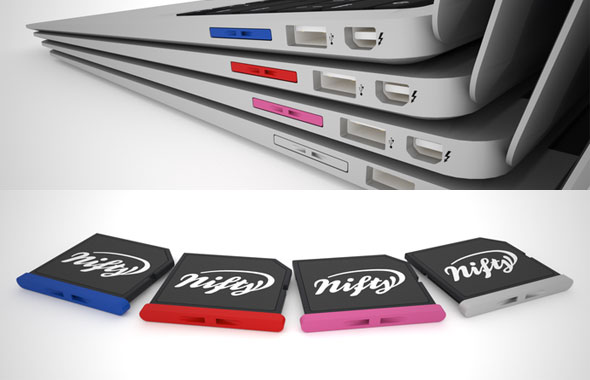
Nifty MiniDrive
If you have a MacBook Air, a MacBook Pro or a MacBook Pro with Retina display and want to add more storage, the Nifty MiniDrive may be the answer. This microSD adapter sits flush with the notebook when attached, providing semipermanent external storage while maintaining the clean lines of Apple’s portables. The largest available microSD Card on the market today is 64GB, which will provide 50 percent more storage for the MacBook Air. But the Nifty MiniDrive will continue to support larger-size microSD Cards as they’re released. MacBook users wishing for more storage capacity flocked to support this card: The campaign reached its $11,000 goal within the first eight hours. The round ended with $384,319 in funding and more than 10,000 preorders. As of press time, manufacturing was on track and Kickstarter backers should receive orders in November. Everyone else can pre-order online for a December delivery.
Sign up to receive The Snapshot, a free special dispatch from Laptop Mag, in your inbox.
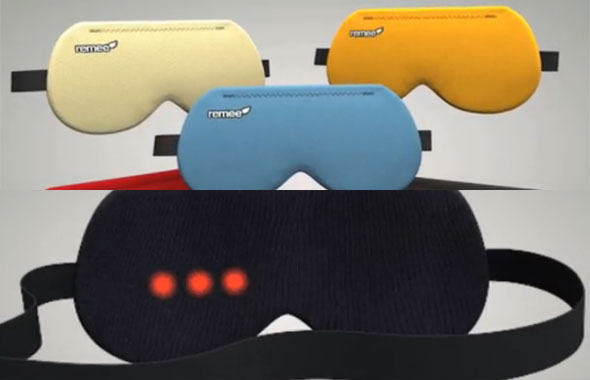
Remee
A portal into your dreams, Remee uses sensors to detect when the wearer is dreaming and flashes a customizable sequence of LED lights. These light patterns aren’t enough to wake you up, but they do register as visual anomalies in your dream, allowing for lucid dreaming. “Around my bedtime on the first day I realized we … were going to fund overnight,” said Steve McGuigan, co-founder of Bitbanger Labs, the company releasing Remee. “I checked in every 15 minutes to see our pledges stacking up significantly.” Remee hit its funding goal of $35,000 at 2:30 a.m. on the night it posted the project. The company raised $572,891 before the campaign ended, an impressive 1,636 percent higher than the original goal. Scaling the production of the Remee sleep mask proved to be the most difficult aspect, upping the original 400-unit estimate to an order of 15,000. The original release date was June 2012, but component delays pushed the ship date estimate back to October.
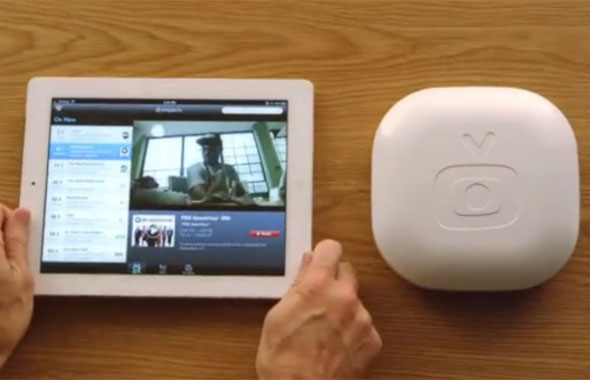
Simple.TV
This device allows you to watch and record live TV from five devices, such as smartphones, tablets and notebooks. Connect an antenna, USB hard drive and network, and Simple.TV will stream live television content simultaneously anywhere in the world. Simple.TV takes free over-the-air broadcasts and converts them into a digital format that can be played on many devices. The connected hard drive allows you to record your favorite shows and watch them on the go. Prior to Kickstarter funding, the Simple.TV team won the CNET Best of CES 2012 award for Best of Show in Home Entertainment. Armed with accolades and press, the startup turned to Kickstarter to raise $125,000, which would fund the final touches on hardware and software design as well as a large order with manufacturers. The company hit its goal within eight days, and by the end of the 30-day funding period, Simple.TV had raised more than $225,000. The Simple.TV boxes were originally scheduled to ship in August, but production delays pushed delivery back to later this fall. Still, backers remain positive. “They realize that we’re building something completely new,” said Mark Ely, founder and CEO of Simple.TV. “The words of encouragement have been fantastic.”
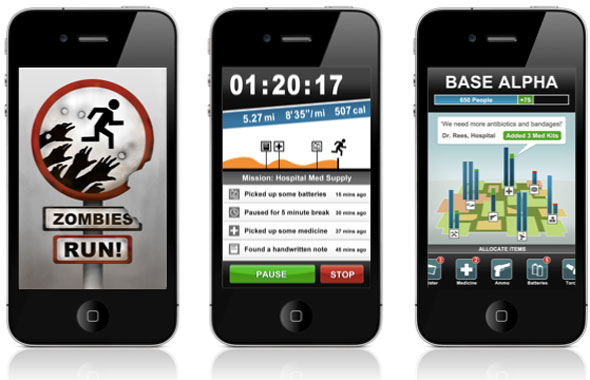
Zombies, Run!
An innovative mobile application that’s part exercise app, part zombie game and part audio book, Zombies, Run! was co-created by Six to Start and writer Naomi Alderman, creating an immersive experience that has users jogging through an adventure game. You start the app as you begin your run and listen to a zombie-filled story slowly unfold as you race to collect critical supplies to help rebuild civilization. After your workout is complete, you can disperse supplies as needed and work toward learning the truth about the zombie apocalypse. Six to Start and Alderman sought $12,500 to create Zombies, Run! The company reached its funding goal in six days, and ended up raising a total of $72,628. Backers who pledged $10 received a copy of the application, but larger pledges were encouraged, with rewards such as brainstorming sessions during the app creation process and the ability to collaborate on in-app characters. The app costs $7.99, and was originally only for iOS, but the company expanded to Android and Windows Phone due to popular demand.
